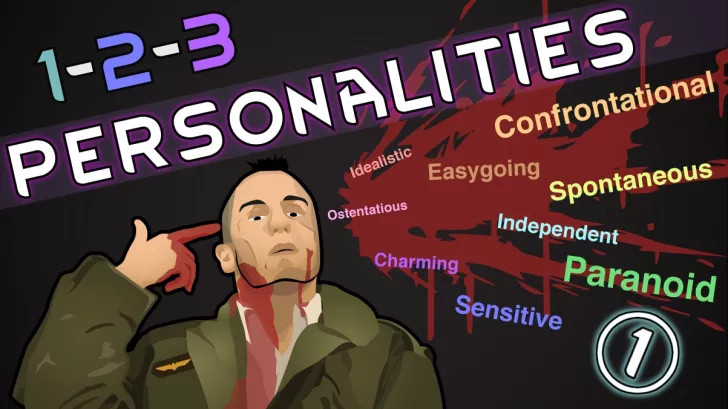Mod «1-2-3 Personalities M1» for Rimworld (v1.2 - 1.3)

1-2-3 Personalities is the first entry in a series of social mods based around idea of modularity and letting players choose how much in-depth impact they want:

1-2-3 Personalities makes each colonist a unique being: thinking, talking and behaving differently, depending on who they are and who they interact with. This mod is designed as a much more compatible, less game-file invasive successor of Psychology, while adding new game mechanics and decision-making.
Psychological drive (instincts, feelings or thinking) is a very generalized characteristic that describes how colonists make decisions and respond to events or people. Pawns either have the same psychological drive and trigger harmonious effect, or they do not and apply complementary effect. In some cases, there will be also a 3rd option – disparate. A disparate effect occurs when at least 3 pawns are involved and all 3 different drives are present in that group.
You can use this system to easily create zones of increased safety or efficiency.
Just remember:
- Harmonious bonuses are pretty big and focus on preventing things
- Complementary bonuses are small but proactive, with occasional drawbacks
- Disparate bonuses are slightly bigger than complementary, but they always come with hefty drawbacks
Intentionally plan your colony to take advantage of these effects, or let your colonists live as they please and let personality differences influence the game and story organically.

Part 3 is where the complexity comes in. According to their personality traits, pawns form permanent opinions of each other and create friendships or rivalries based on their views on certain topics. If two colonists don't like each other, you can check the Social Media tab and see why. Maybe they're arguing about communism all day? Or disagree with the meaning of life? Or maybe they just fight from time to time about eating gluten.
There is a database of more than 100 serious topics and important life categories. Each pawn has a certain interest in a given topic, as well as an excitement factor. One colonist may be very interested in politics and try to talk about it most of the time, but is not easily offended by people who disagree with them. Others may never talk about their marital problems, but will react intensely when they are drawn into this kind of conversation. Some pawns will try to talk about things they have no idea about, and others may get annoyed that they do. Discussions can develop in many different directions!
Among other consequences of this system, pawns will behave differently in the presence of people they like or don't like.
File info
- Added by: Luc
- Author: Hahkethomemah
- Mod version: 11.04.22
- File format: ZIP
- File size: 4.0 mb
- Source: Go to

